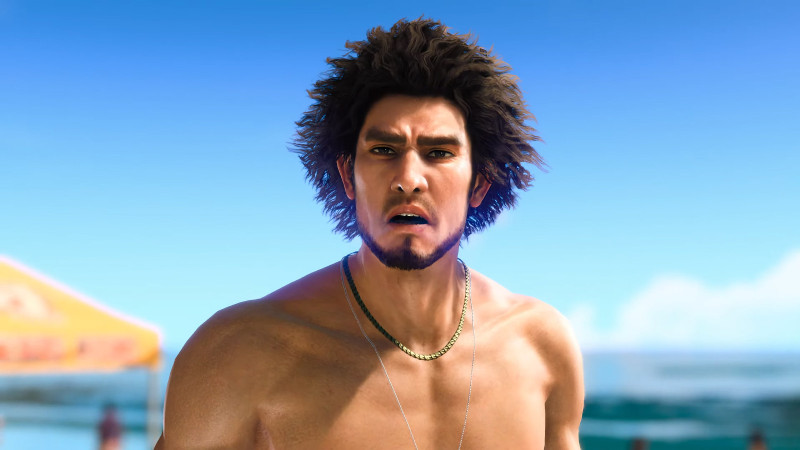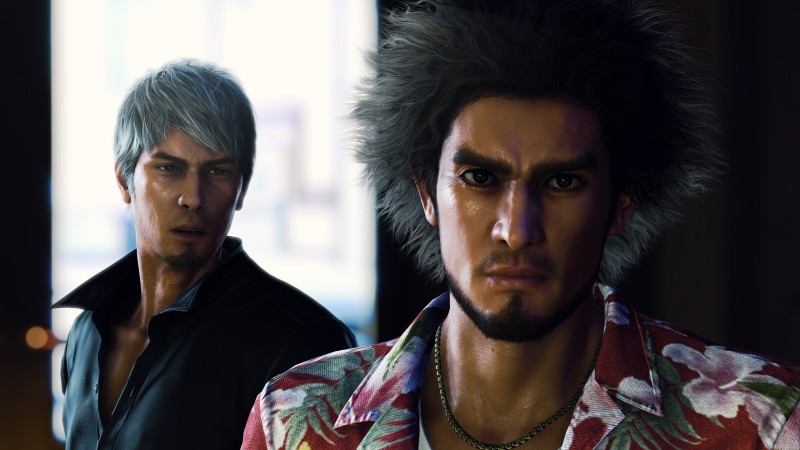By the time I saw the credits on Like a Dragon: Infinite Wealth, I felt like I had been through the emotional ringer. I was mentally exhausted. I think that’s by design. Infinite Wealth is developer Ryu Ga Gotoku’s (RGG) most ambitious project by a long shot – an epic tale told across multiple characters and continents, featuring the conclusion of some nearly 20-year-old plot threads that leave at least one character, quite literally and relatably, asleep in the streets. Some of this is the best work the developer has ever done, a new watermark for the series going forward. And some of it is some of the studio’s worst. Like everything in Infinite Wealth, it’s complicated.
Infinite Wealth picks up a few years after the events of Yakuza: Like a Dragon and continues the story of dual-series protagonist Ichiban Kasuga, a former yakuza who’s now taken up work trying to help rehabilitate other yakuza members back into society by finding them jobs. By the laws of narrative, this goes horribly wrong, and it’s not long before Ichiban and friends, who now all find themselves out of work, are back in the folds of the criminal underworld. After the dissolution of the nation’s two biggest families, the Tojo Clan and the Omi Alliance, in the previous game, the Seiryu Clan reigns supreme in Yokohama’s Ijincho district. The group is not only working on its own dissolution program and trying to give former yakuza work, but it also has information on Ichiban’s long-lost mother, Akane. He just needs to go to Hawaii to find her.
Once in Hawaii, Ichiban quickly runs into his counterpart and former star of the show Kiryu Kazuma. Kiryu plays a much larger role in this game than in Like a Dragon before it – mainly because he’s also a playable character. Ichiban and Kiryu being playable in the same game represents a passing of the torch of sorts, and I truly love the time I got to spend with Kiryu. He’s an old man now with cancer and a few months to live. He’s coming to terms with his life, and Infinite Wealth goes a long way in softening and humanizing him. I always felt that letting Kiryu live after the events of Yakuza 6, where he faked his death, was the wrong call. This game reckons with that idea a lot, and even if I’m not totally sold on where it ends up, I like the road it takes to get there a lot.
The dual protagonists also give the cast the chance to expand and breathe. At one point in the story, Kiryu and a small team of characters from the previous game return to Japan, leaving Ichiban with a cast of mostly new characters. The game jumps back and forth between the two, allowing tons of time to get to know everyone. I especially love newcomers Chitose and Tomizawa and never skipped a moment to learn more about the central cast.
Moving a bulk of the game’s story to Hawaii allows RGG to open up its narrative potential. No longer confined to just Japan, the studio aims common issues facing America today – including further criticisms of the treatment of the unhoused and sex workers, something it examined in Japan in previous games. America’s corrupt police state gets especially harsh criticism as we see how the police abuse its position to exploit common citizens and foreigners and ignore its roles within society. The Yakuza/Like a Dragon series has always been political, and RGG has always been very opinionated. While the studio hasn’t always stuck the landing, Infinite Wealth reinforces how the studio is insistent on tackling these concepts. Seeing a studio successfully approaching these issues with maturity is incredibly refreshing.
That’s not to say this game isn’t still about the yakuza. Infinite Wealth pulls from the real-world laws against former members of Japanese crime families. It examines whether or not they’re actually useful means of rehabilitation while also looking at the ways these groups can be easily exploited by those in power. Kiryu, as a character, beautifully fits this narrative hook. He is a criminal, after all; for all the good he’s done, his past is full of darkness. Ichiban, too. What does it mean to reintroduce criminals into society, rehabilitate them, allow them to be sorry, and offer them forgiveness? What does it mean to let these people live normal lives again, and will society ever actually allow that? The best moments of Infinite Wealth are when these questions are called into focus, and I was constantly surprised at the empathy and nuance RGG showed throughout the story.
But it takes some pretty spectacular stumbles on the way to that greatness. Much of the Hawaii plotline revolves around the Palekana religious cult, which Akane is a member of, and its figurehead, Bryce Fairchild. For all the nuance and thought put into its real-world topics, the game’s portrayal of cults and religious fanaticism is laughable at best and completely superfluous at worst. Bryce is certainly evil; it’s just that he’s evil in a way with no depth. RGG has gone to great lengths to humanize its villains and give meanings to their actions – and the other antagonists of Infinite Wealth have loads of interesting motives. But not Bryce. He’s just a bad guy. And a boring one at that. The game is all too quick to shove the Palekana story aside, including characters it spent dozens of hours building up to focus on other topics. Almost like the game itself knows it isn’t very good. It’s unfortunate because this plotline is stacked against some of the best moments in the series.
Unfortunate, too, is how that story is delivered. As usual, Infinite Wealth features some of the best acting in the entire game industry – most of the time. A lot of the Japanese talent behind the main cast is incredible, especially newcomers such as Satoru Iguchi, of King Gnu fame, who plays Tomizawa. His entire arc is wonderfully realized, moving, and funny. On the other hand, other characters fall entirely flat. For example, Bryce is written to be fluent in both Japanese and English. His Japanese is great. His English sounds like someone reading the words out phonetically in a different language. In fact, many of the American characters are clearly voiced by actors struggling to deliver their English lines. Switching to the English VO doesn’t help much either, as the main cast feels awful when contrasted against who they are as people – with the exception of maybe Danny Trejo’s character. The voice acting is full of odd choices such as this that, depending on the character, can really pull you out of the moment.
Luckily, Infinite Wealth’s gameplay is often stellar across the board. As always, it’s a joy to explore RGG’s open worlds, and the three here – Kamurocho, Ijincho, and Honolulu – are all fantastic. Honolulu, especially, has a completely different vibe than other RGG worlds, and I loved exploring its bright beaches, seedy back streets, and luxurious hotel districts. Taking Kiryu back to the streets of Kamurocho is wonderfully nostalgic, too, and Infinite Wealth wastes no time letting him reminisce and enjoy his old haunts. I spent so much time taking Kiryu to places from the old games, loving how much thought went into how we would react.
You spend the vast majority of your time as you do in any other RGG game: beating the holy hell out of dudes in the street. Infinite Wealth continues Like a Dragon’s change to turn-based combat, and the updates here make for a surprisingly deep and engaging system. Including directional and combo attacks adds interesting layers to how you approach an enemy. Exploiting an enemy’s weakness and, in turn, having multiple members of your party dynamically attack the same foe in one turn consistently feels great. And I was always excited to see what new whacky animations I’d see when getting new magic attacks.
Infinite Wealth’s job system – effectively how you change character classes and a returning mechanic from the previous game – creates a ton of interesting team line-ups, and I really enjoyed experimenting and building out as well-rounded a party as I could. Upgrading your job level also allows you to import skills from other jobs, leading to some truly dynamic characters with various elemental attacks. That said, while I do love combat, grinding out levels in the game’s dungeon was a real chore at times – boring, monotonous, and took way too long for its own good.
Your mileage will vary with the game’s unbelievable amount of side content. Infinite Wealth surprised me with its substories, which I’ve historically never really enjoyed in other games. Here, I found some of them deeply funny (there’s one about a dating app that’s great) and well-thought-out. I also enjoyed a lot of the mini-games, such as the Crazy Taxi-inspired food delivery game and finding all the optional conversations and character links. However, I did not enjoy the Animal Crossing-inspired Dondoko Island or the Pokémon-like collecting and fighting games, which I found incredibly dull and convoluted. Luckily, they are optional after their introduction, but that intro grinds the game to a halt so it can slowly explain all the various rules and mechanics. There are plenty of other side activities I didn’t have time to even touch, and I imagine there are easily 100-plus hours of the game for the most dedicated. Some of it’s pretty dang good. I just hope I never have to go back to Dondoko Island ever again.

Infinite Wealth is a swing for the fences for RGG. At one point, the Yakuza series was a cult classic relegated to small fanbases outside of Japan. That changed in 2017 when Yakuza 0 finally hit it big. By the time Yakuza: Like a Dragon came out in 2020, it was clear RGG had a phenomenon on its hands. The result of that success is a massive game brimming with things to do and say. Sometimes, it’s too much. There’s a version of Infinite Wealth that leaves a lot on the cutting room floor and saves itself loads of tedium. There were so many hours that I wished that was the game I was playing instead.
And yet, I can’t help but be amazed by what it does pull off over its impressively long run-time. It’s rare to see a triple-A video game have anything worthwhile to say about the need for criminal rehabilitation, the police state, and even nuclear disposal. Somehow, this game has all those topics and smart (albeit somewhat surface-level) things to say about them. I’m shocked that its combat system consistently felt new and fresh after 60 hours and that I was finding new ways to use it. That it gave me so much time with some of my favorite characters in video games, allowing me to know them so much deeper than I ever knew before, was just the cherry on top.
In one of the final moments of Infinite Wealth, one of the characters falls exhausted into the street, beaten down by everything that just came before. As he does so, he looks satisfied and happy, even though arguably nothing is going right for him at that moment. In a lot of ways, I felt the exact same by the end of the game. I was tired. And yet, I was also ready to see what this crew would get up to next.
